Clydesdale horses originated in Lanarkshire, these gentle giants and their old-fashioned power helped to drive the economy before the introduction of tractors.
At one point Scotland had more than 140,000 working Clydesdales, however, numbers dwindled post war and now this iconic native breed is categorised as at risk by Rare Breed Survival Trust.
Steph and Billy Anderson, have had their hearts captured by this breed, and they use a pair of them on their 15 acre smallholding near Lauder.
The couple moved to the Borders nine years ago from East Lothian, since then, Billy chuckles, "We have just been slowly trying to grow our market garden.”
He doesn't come from a farming background, he is a joiner by trade. After school he went straight to work in the family business doing everything from making bespoke windows and doors to working on new builds and renovations.
He admits that he didn't really love joinery, "it was just a job that came along."
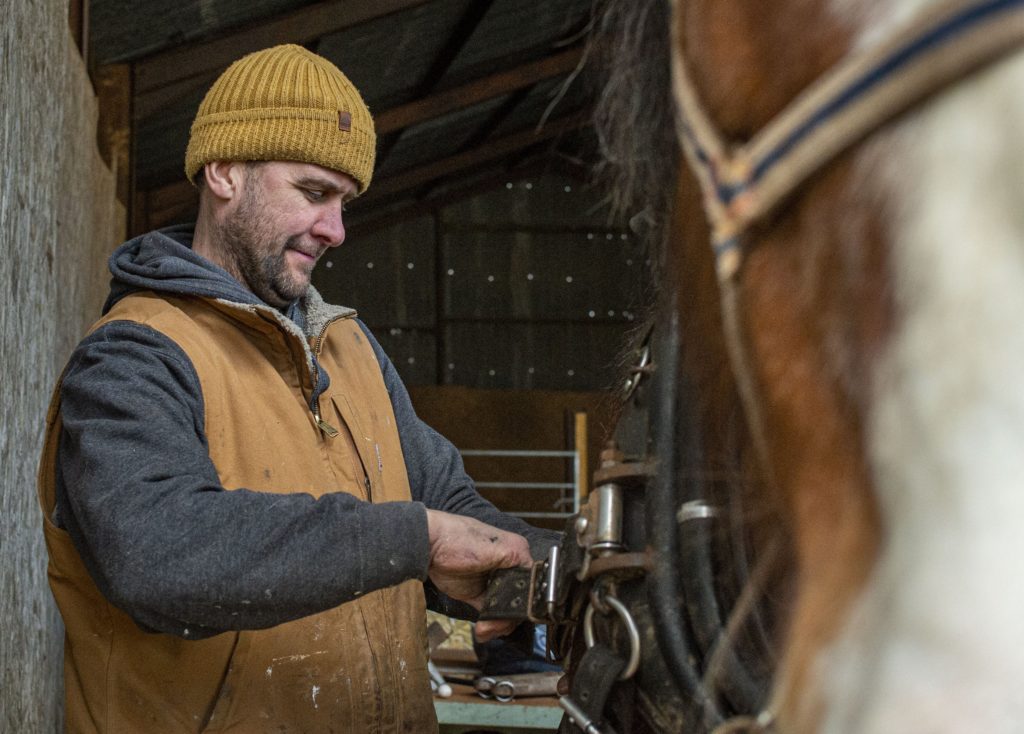
Although as a youngster his parents advised him to get a trade and it has stood him in good stead. “it was the best thing because it has helped with all the stepping stones to get to where we are. I have kind of battled with it over the years but I have always ended up back with it because it gives me a living."
Steph, meanwhile, worked as a riding instructor, but she admits working horses on the land has been a new experience.
About five years ago the couple began their small scale growing adventure. One of the reasons for embarking on their adventure was Billy's ill health, but adopting a plant-based diet has helped his symptoms.
Although they are not certified organic they do grow naturally, and he says: “Now people are interested in where their food comes from and they like the idea of us using the horses."
Billy also has his joinery workshop there, but the dream is to gradually build the market garden so that it becomes their main income.
So, this year they have ploughed more land and are installing a polytunnel. “We are really trying to push it. We can see there is a market there and more people are interested in us."
As a child Billy did not have his own pony, but he took riding lessons."I kind of drifted away from it when I got to the age of 16 but I just had a love for horses and being around about them. It wasn’t necessarily the riding aspect, I was fascinated by horses working in the woods or ploughing."
Now he has managed to combine both his love for farming as well as working with Clydesdales.
Growing up, his family were green fingered and they grew their own vegetables. He was made to dig, hoe and weed which he admits was, "Not very enjoyable when you are younger." But now his passion for it has bloomed and he loves doing it.
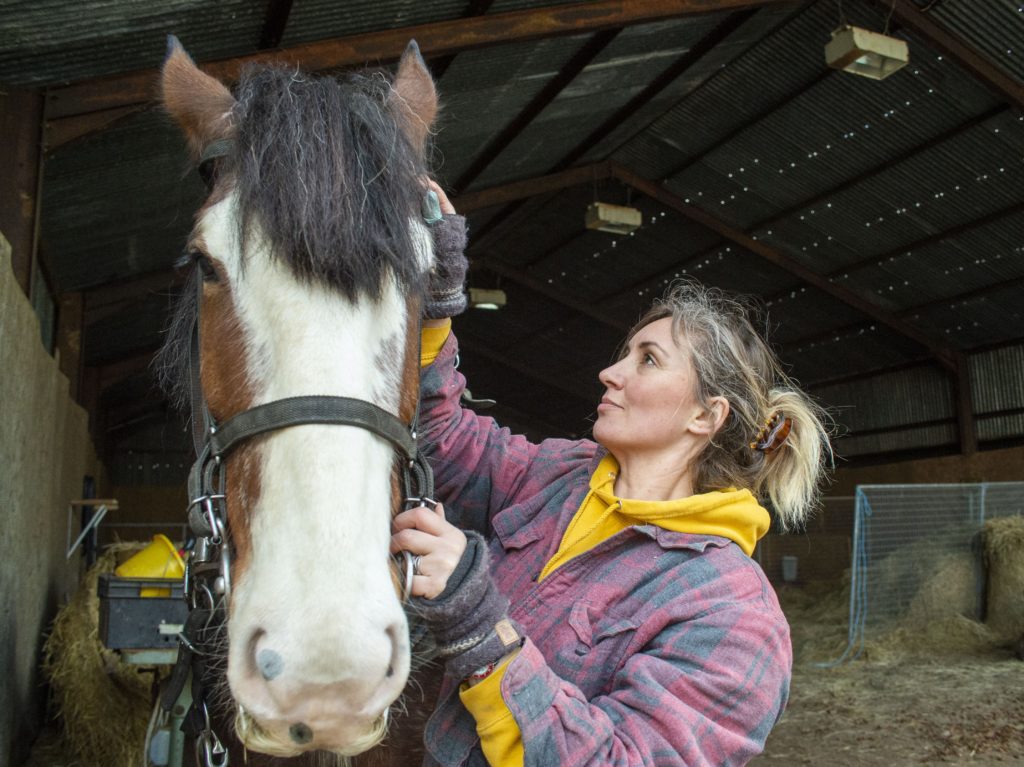
He met his wife Steph at the Haddington agricultural show where she was working on a stand, and they bumped into each other at the dance later that night. Luckily they share the same interests: horses and a rural lifestyle and growing vegetables.
They went in search of a property within commuting distance of East Lothian and ended up buying Fingerpost, but initially they lost out to another buyer.
Eventually, after a stressful few months a new offer was accepted and they moved in 2013. The place had been empty for about three years and was overgrown but they set about putting things right.
Billy says: "We are both well aware of how much work is needed but it is enjoyable, it is not a chore. We love doing it and that makes half the difference."
One of the main drivers for the move to the country was finding somewhere suitable for the couple's horses, and finding a place where they could live and work.
They currently have two horses called Dicky and Dave, bay in colour and around 17.5 hands high with white feathers on their feet.
Billy explains: "We lost one of the boys at the beginning of the summer (called Clyde Turlough) which was heartbreaking. The worst part of having animals is you get bloody attached to them, they are part of the family."
They prefer to always have three horses so if one of them goes lame they can still work them as a pair instead of three a breast.
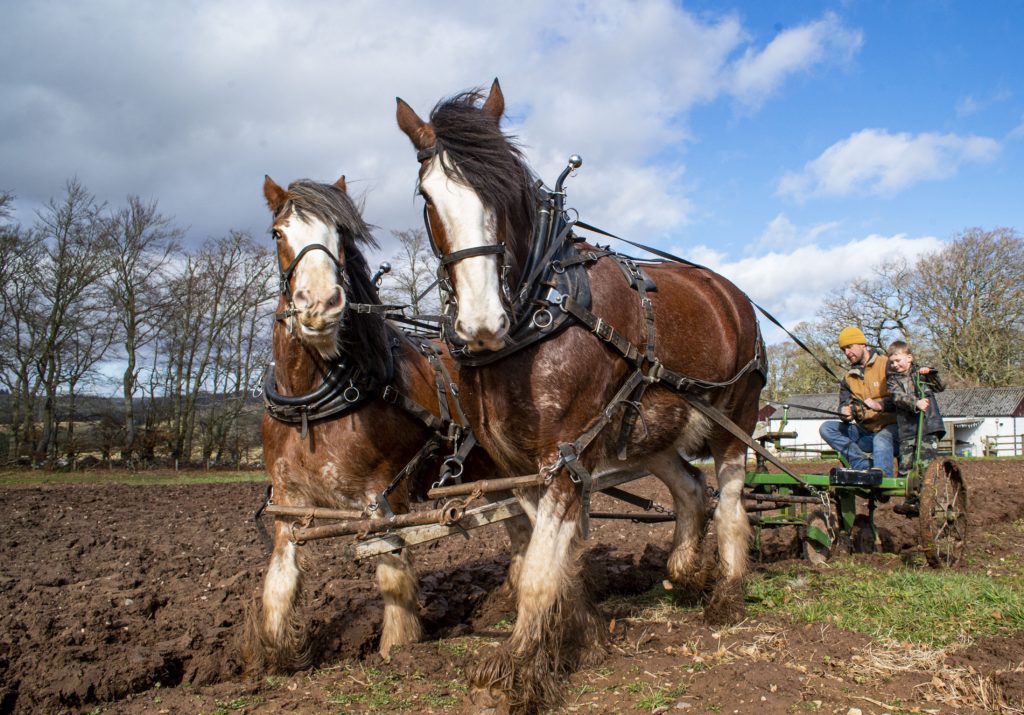
Billy had never ploughed with horses before moving but was undaunted. "I just kind of got pointers from different lads on the telephone and then just set about it."
The horses are key to the process, at the start of the season they are unfit so can only do short spells. "When you strike out the first time they tend to be all over the place and you want your first row to be nice and straight and that tends to not happen."
Now, after ploughing for the past five years he proudly admits: “It's looking good if I do say so myself." The horses are involved with all aspects of the farm; harrowing, rolling, muck spreading, preparing and cultivating beds and they mow and rake the hay.
They even have a special horse powered crane so they can lift things. Billy says: "They do everything that we need to do around here."
I ask, with oil prices on the rise, will horse power now be able to compete? "I think they will aye, it is bound to."
Although there have been plenty of times he wished for a tractor. He says: "It is way too easy when you are very busy to say I can't be bothered putting the harness on the horse, I'll go and get the tractor, but that becomes quite habitual. Instead we just have to get the horse out and get on with it."
Steph adds: “They are our tractors fed on grass not gas. The old-fashioned methods are the most environmentally friendly in my eyes and it is such a nice thing to be a part of.”
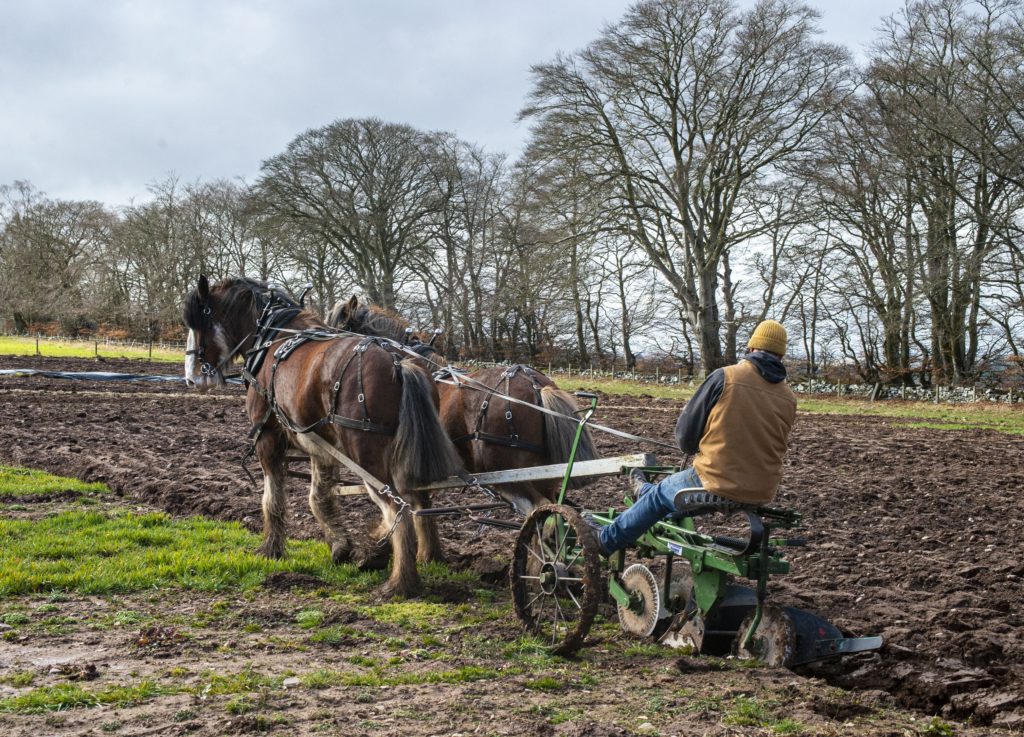
The Clydesdales are stabled but in the summer they are out munching in the fields when they are not working. They are thinking about replacing the horse they lost with a smaller cross breed, something with, "A Clydesdale's beautiful nature but down in size a little bit”.
Billy explains that the Clydesdale breed survived due to success in the show ring, with their great height and big feet. “They are getting taller and lankier, they have a big higher action with their feet which you really don't want when you are working them here, you want something more compact."
The two horses have very different natures: "Davy is challenging at times but Dicky is a good horse, he's just easier to work with. Dave can be a wee bit stubborn.
The couple trained them both themselves as Billy explains: "We spend a bit of time with them and bring them on slowly." They start light harness work aged three years, and are also trained to be ridden.
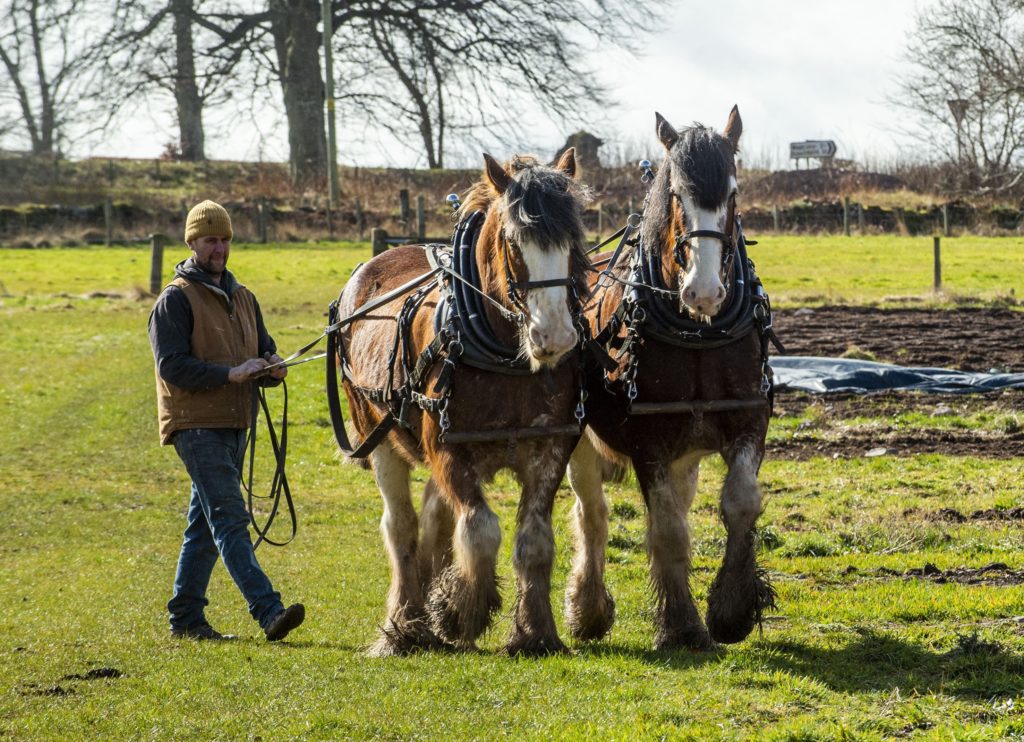
Initially they started out selling seasonal vegetable boxes from the Fingerpost veg shack and gradually word has spread.
Now three local restaurants take their fresh seasonal produce; The Watchman Hotel, Gullane, Firebrick Brasserie, Lauder and The Collingwood Arms, Coldstream.
This season they have a website ready to launch but, "not yet as we are a wee bit off having produce ready." This year they plan to grow some heritage tatties, purple majesty, golden mayan and fir apples.
Billy says, "I like growing tatties, I don't know why but I do."
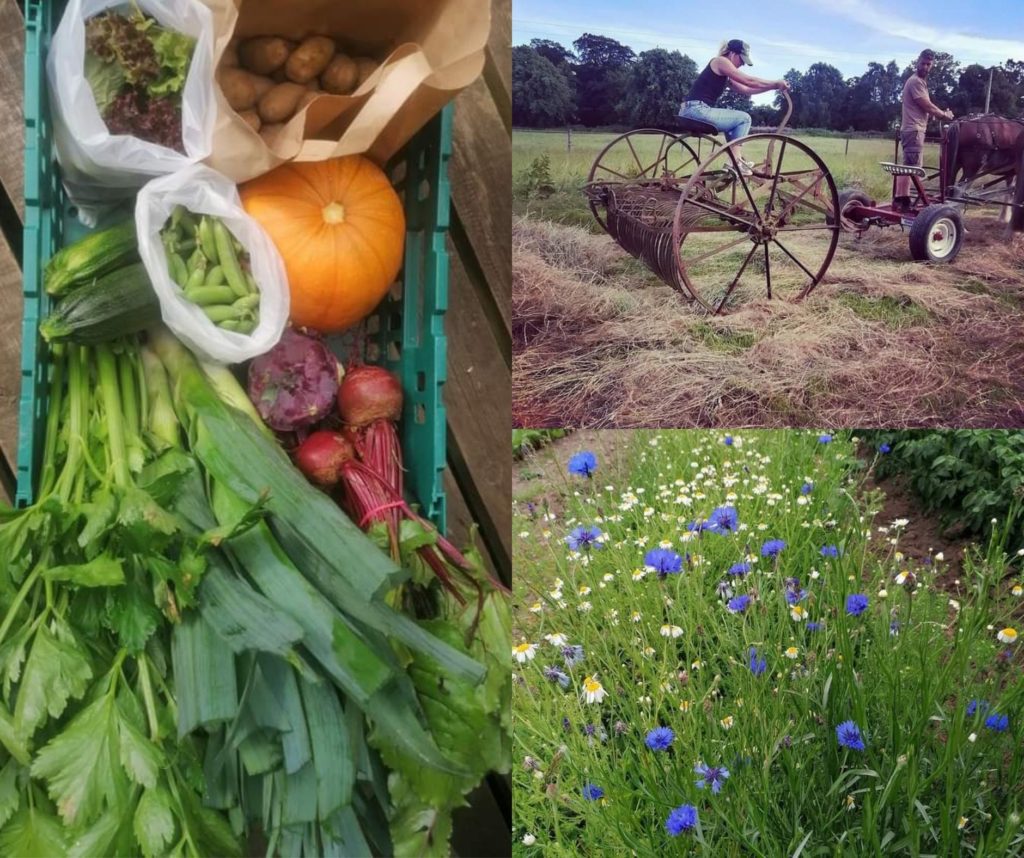
Steph’s domain is seeding up and transplanting. “I really love it, it is really therapeutic.” This year they are planning to grow a wide variety of vegetables: cabbages, peas, broccoli, calabrese, leeks, carrots, beetroot, kholi rabhi, radish, greens, chard, tomatoes, cucumbers, onion, tokyo or salad turnips, squash pumpkins, courgettes, brussels sprouts and parsnips.
Their two youngest children have free range of the place. “In the summer the young ones are kicking about in shorts in bare feet pulling carrots out and munching them. It is a joy to see," says Billy.
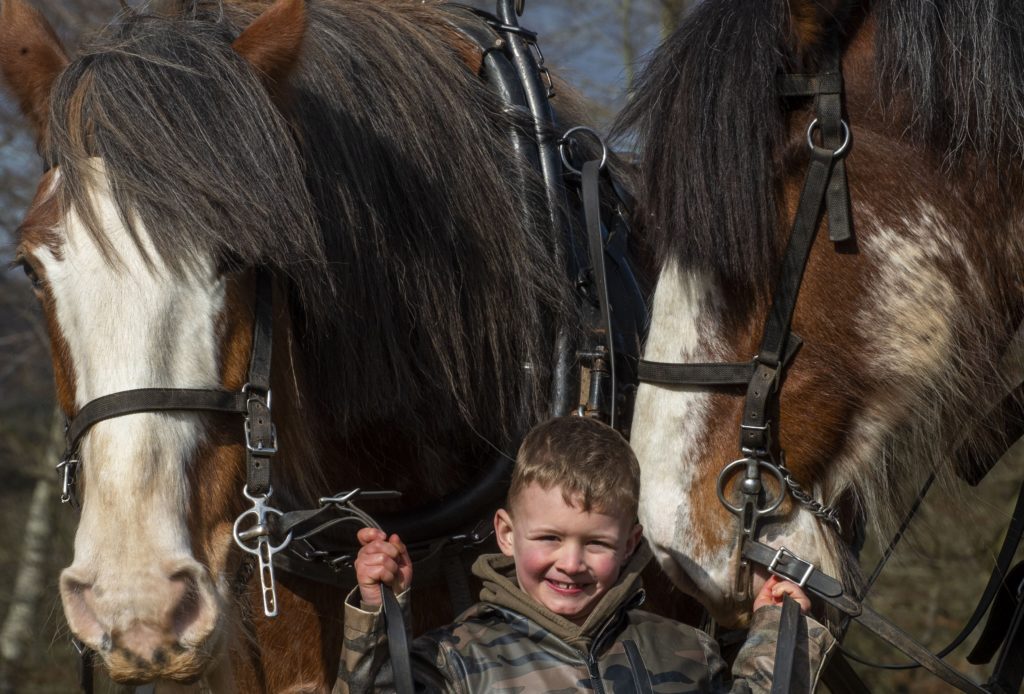
Steph fondly remembers her own childhood in her granny's garden helping herself to gooseberries and strawberries: “There’s nothing like a cup of sugar and a bit of rhubarb.
This year with the new 100ft by 30 ft polytunnel up and running they will be able to extend the growing season on their elevated site.
As they move one step closer to becoming a full-time growing business Billy admits: "It is a lot of work and if you weren't enthusiastic you wouldn't do it and you'd continue making doors and windows to make a living, but it's just not the same."
If only I could harness this hardworking couple's energy and enthusiasm for life.